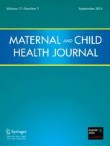
Abstract
Objectives
Active and passive exposure to tobacco cigarettes during pregnancy is associated with multiple negative health outcomes for the fetus. In addition, exposure to e-cigarettes has been progressively discussed as a new threat to fetal health. Until now, there has been a lack of studies examining active and passive exposure to tobacco and e-cigarettes among pregnant women. The objective of our current STudy on E-cigarettes and Pregnancy (STEP) was to advance and complement the current knowledge regarding active and passive exposure to tobacco and e-cigarettes before pregnancy and during early and late pregnancy.
Methods
One element of the STEP study was a quantitative cross-sectional design: A sample of 540 pregnant women recruited at an obstetrician clinic in Hamburg from April 2018 to January 2019 were surveyed once via a standardized questionnaire and provided complete information regarding their consumption of tobacco and e-cigarettes. We performed a descriptive analysis of tobacco and e-cigarette use before pregnancy and during early and late pregnancy, as well as bivariate analysis of these variables with sociodemographic determinants. Passive exposure was assessed by asking the participating pregnant women about the consumption of tobacco and e-cigarettes by their partners, in general, and in their homes.
Results
Before pregnancy, 20.0% of the participants used tobacco cigarettes exclusively, 1.3% used e-cigarettes exclusively, and 6.5% were dual users. Educational level was significantly associated with tobacco cigarette use (p < 0.001) and dual use (p = 0.047) before pregnancy. During early (late) pregnancy, 8.7% (2.8%) used tobacco cigarettes and 0.4% (0.0%) used e-cigarettes exclusively. Twenty-point nine percent of women's partners consumed tobacco cigarettes exclusively, 2.7% consumed e-cigarettes exclusively, and 2.7% consumed both. A total of 8.5% (16.7%) of the partners who consumed tobacco cigarettes exclusively (e-cigarettes exclusively) did so in the women's homes.
Conclusions for Practice
Among pregnant women, the use of tobacco cigarettes remains prominent before and during pregnancy, while e-cigarette use predominately occurs before pregnancy. Our study shows that pregnant women are frequently exposed to their partners' tobacco and e-cigarette use within their homes. Strategies to reduce such exposure should be further intensified.



No comments:
Post a Comment